Gas lines are as crucial as electricity on our properties. We need gas lines to power our stoves, water heaters, fireplaces, and other appliances necessary for our warmth, comfort, and convenience.
Do you have a problem with your gas line or need to hire a professional for gas line installation? Mr. Rooter Plumbing is a service provider you can trust.
Phone your local Mr. Rooter Plumbing today or request a job estimate online.
Residential Gas Line Services
Mr. Rooter Plumbing is proud to provide a range of gas line services for residential customers throughout the country. Whether you need a gas boiler repair, a gas line repair, or a complete gas line install service, your locally owned and operated Mr. Rooter Plumbing is here to help. Learn more about our gas line plumbing services below.
Gas Line Repair
Mr. Rooter Plumbing is the team of gas plumbers that HVAC companies and fireplace technicians call when they need help with complex and large-scale jobs. However, we’re also here for our residential customers.
Whether your gas woe relates to a heating source, a stove, an appliance, or something else, you can expect comprehensive gas line services from Mr. Rooter Plumbing. Inquire about our gas line repair services today, including:
- Gas boiler service and repairs
- Gas boiler maintenance
- Home gas line repair
- Gas line leak repair
- And more…
Looking for a gas line plumber you can trust? Contact Mr. Rooter Plumbing today.
Gas Line Replacement and Installation
Gas lines can’t always be repaired. Damage and leaks can sometimes be so severe that a gas line repair service would not be cost-effective or safe. In that case, talk to Mr. Rooter Plumbing about gas line replacement.
We can replace gas lines that are no longer safe to use on residential properties. We can also install gas lines on new properties for fireplaces, boilers, stoves, and other appliances. Whether you’re looking for propane or natural gas line installation, Mr. Rooter Plumbing’s gas plumber team is here to help.
Other Gas Services
Mr. Rooter Plumbing is proud to provide a comprehensive residential gas line service for our loyal customers. Beyond gas line replacement, installation, and repairs, we also offer other related services, including residential gas line inspections and residential gas line pressure tests.
Are you unsure whether your gas line is working at its best? Are you worried about a leak? Contact Mr. Rooter Plumbing as soon as possible. We’re available 24/7 to take your call.
When Is It Time to Call a Gas Plumber?
When you’ve never had to navigate gas line problems or queries, knowing when to call a gas plumber isn’t always easy! However, if you can relate to these situations below, now might be the right time to schedule a service call with Mr. Rooter Plumbing:
You Have a Gas Leak
If you suspect a gas leak in or around your home, smell gas, or hear a hissing noise around gas lines or gas appliances, contact an emergency plumber without delay. Gas leaks can be dangerous and often require immediate attention.
Your Pilot Light Is Experiencing Issues
Does your gas appliance’s pilot light keep going out or refuse to ignite? Contact Mr. Rooter Plumbing for help. A pilot light issue may require a trained service professional to address.
A Gas Appliance is Malfunctioning
As convenient as gas stoves, ovens, heaters, and boilers can be, they can also experience problems. If an appliance isn’t working or is performing poorly, request a job estimate with Mr. Rooter Plumbing online. They can diagnose the issue and provide repair or replacement services to suit your unique situation.
You Have Low Gas Pressure
Most homeowners know the pressure their gas lines typically operate at. Therefore, it can be obvious when it’s lower than usual. If you’re experiencing low gas pressure, contact Mr. Rooter Plumbing. Your local service professional can help identify the issue, which can often be a problem with the gas line or meter.
You’re Installing a New Gas Appliance
Whether you’re installing a new gas appliance or replacing an old one, you need a gas line service professional you can trust. Reach out to Mr. Rooter Plumbing to ensure your new installation meets safety standards.
You Need to Ensure Regulatory Compliance
Depending on where you live in the United States, your town or city may have specific regulations and codes for gas line replacement, installation, and repairs. Let licensed professionals handle all gas-related work to ensure compliance with local codes and safety standards.

How to Know You Need to Replace Your Gas Line
Most homeowners aren’t experienced in how to inspect and look after their residential gas lines. As a result, it’s not always easy to know when you need to replace gas lines or, at a minimum, consult a professional for gas line repairs.
The following signs may indicate that now is the right time to explore residential gas line installation and replacement services near you:
The Gas Line Is Old
Old gas lines can be more at risk of leaks than new ones. They can also be made of outdated materials like polybutylene and galvanized steel. If your gas line is old and features such materials, consider contacting a service professional to replace them. Modern gas lines typically feature corrosion-resistant and flexible materials, such as polyethylene.
You’re Constantly Having to Repair Gas Line Leaks
Frequent leaks can take a toll on your stress levels – and your wallet. If you’re forever dealing with gas leaks, even after repairs, your gas line might be deteriorating and require total replacement.
You Notice Bubbles in the Soil
Bubbles in the soil near your gas line after applying soapy water solutions can be cause for concern. These bubbles can sometimes indicate that you have a gas leak or your line is old and damaged. In both situations, total gas line replacement could be required.
Your Gas Line Has Been Damaged
Construction and excavation works don’t always go off without a hitch. Unfortunately, accidents can happen, and gas lines can end up cut, crushed, and damaged. If the worst should happen, contact Mr. Rooter Plumbing without delay. You may need to replace gas line sections or undertake repairs.
It’s Showing Signs of Wear and Tear
Something as simple as installing a gas stove line can sometimes reveal signs of wear and tear in other parts of your gas line. If you notice cracks, bulges, or similar, address them immediately. If wear and tear are present throughout your gas line, a full replacement could be required.
Your Energy Bills Have Increased
Over the years, we often become quite familiar with how much energy, water, and gas our families use on average. If you’ve noticed an unusual increase in your gas bill without changing your usage habits, it might be more than a coincidence. A sudden increase may indicate a gas leak or inefficiency in your system.
Gas Line Residential FAQs
Are you interested in learning more about your residential property’s gas lines? Do you have questions about replacement, installation, and repairs? Mr. Rooter Plumbing is here to provide the information you need. Contact us to get the answers to your pressing questions! We’ve also answered some of our more commonly asked gas line service questions below:
How is Gas Supplied to Homes in the U.S.?
Natural gas arrives in residential areas through large pipelines. It then flows into smaller mains pipes and then into even smaller service lines that lead directly into residential properties. There are also three main types of underground natural gas storage in the United States – depleted natural gas or oil fields, salt caverns, and aquifers.
From these storage facilities, we have three types of transmission pipelines: interstate natural gas pipelines to transport gas across state borders, intrastate pipelines for transport within state borders, and Hinshaw pipelines to receive gas from interstate pipelines and deliver it to consumers within state borders.
What Is the Residential Gas Line Size?
There is no one-size-fits-all approach to residential gas line sizing. Your plumber will choose the most appropriate pipe diameter and pipe length based on the type of gas your home has and the BTUs for new gas installations. Plumbers also factor in existing gas line capacities to ensure the most appropriate pressures.
What Is the Average Gas Line Installation Cost?
It’s only natural to question gas line costs, such as gas line installation cost per foot, when you’re about to install a new gas line or repair an existing one. However, how much replacing gas line costs can depend on many factors, such as:
- The length of the gas line
- Any required permits and inspections
- Labor charges
- The complexity of the installation task
- Your chosen gas plumbers
- Your location
- Existing infrastructure
- The type of gas line being installed
- Accessibility
- Soil conditions
- Weather conditions
If you want to know gas line replacement costs in your area, contact your local Mr. Rooter Plumbing today. You can also request a job estimate online.
How Deep Are Residential Gas Lines Buried?
How deep residential gas lines are buried can depend on where you live. Our local governments regulate their depth, and it can vary across different towns and cities.
Most gas lines in the United States are between 18 and 24 inches underground. Main gas lines tend to be buried deeper than service gas lines. How deeply your gas line is buried can also depend on the type of gas your property has and the pipeline’s purpose.
What’s Involved in Fireplace Gas Line Replacement?
There may come a time when you need to replace a failing or leaking fireplace gas line. It doesn’t hurt to know how a new fireplace gas line is installed. Most plumbers take these steps:
1. Take measurements and prepare the site according to local regulations2. Turn off the gas before beginning work3. Gather all materials needed, such as fittings, piping, and threading 4. Run the gas line to the fireplace’s location – this can be through walls and floors 5. Attach the fittings to the fireplace6. Turn on the gas to test the line and ensure adequate sealing
Which Pipe is Best for Gas Lines in Homes?
There are multiple common pipe options used for gas lines throughout the United States, including polyethylene (PE), steel, black iron, and copper.
High-density polyethylene (HDPE) is among the most commonly used materials for gas piping because it can resist high pressures and is light, affordable, and easy to transport. This material is also common for drainage and sewer systems.
Some indoor gas piping also consists of steel piping, which is durable and energy-efficient. However, it’s not generally recommended for exterior use and can be labor-intensive to install.
Your local gas plumber may use gas piping, which is designed to make leakproof seals and be incredibly strong. In the past, copper was also a popular gas piping material, but it’s not as widely used.
Why Can’t You Use PVC for Gas Lines?
While PVC pipes are commonly used for many plumbing operations, they are not recommended for gas lines. PVC and similar plastics can deform in high temperatures, resulting in leaks and ruptures.

Gas Line Installation Near Me: Why Choose Mr. Rooter Plumbing?
Whether you need a gas line installation or repair service, you want gas line plumbers you can trust. Homeowners throughout the nation choose Mr. Rooter Plumbing for some of the following reasons:
- We are professional and courteous
- We provide flexible appointment times
- Our team is licensed and insured
- We are locally owned and operated
- We offer guaranteed parts and workmanship
- We provide flat-rate pricing and in-house estimates*
*Not available at all Mr. Rooter Plumbing locations. Please contact your local Mr. Rooter Plumbing to learn more.
 Click to call
Click to call


